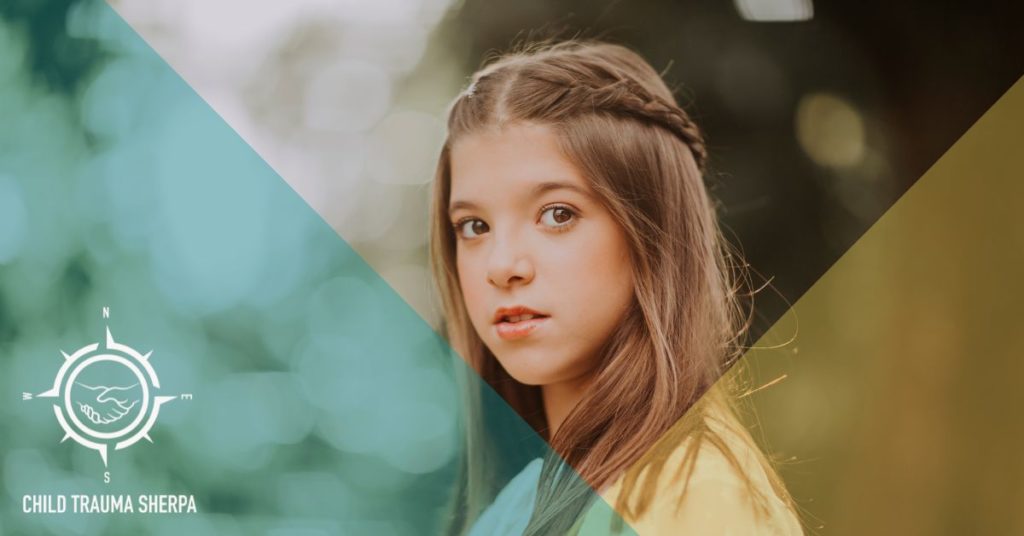The Emotional Effects of Adverse Childhood Events

Traumatic and stressful experiences, in essence, leave behind a scar in our mind. When something scary or traumatic happens to us, it’s hard to forget how it made us feel. Today we are going to look at prolonged trauma and stress (such as childhood trauma), and the possible trauma and stress related disorders that can result from those experiences.
What is Childhood Trauma?
Childhood trauma is when a child experiences or witnesses an event or events that are frightening, dangerous, or violent. These events, called adverse childhood experiences (ACEs), often make children feel unsafe and unfortunately, are perpetrated by someone who is a person of trust, such as a parent. This can change how children develop attachments and relationships, as well as affect their behavior. Some types of trauma include:
- Physical abuse
- Sexual abuse
- Emotional or psychological abuse
- Neglect
- Community violence
- Natural disasters
- Discrimination or prejudice
- Sudden or violent loss of a loved one
- Substance use disorder (personal or familial)
- Traumatic separation (e.g. incarceration, immigration, divorce)
- Refugee or war experiences
- Serious accidents or life-threatening illness
Because these events are so traumatic, or go on for prolonged periods, it can damage the brain and affect how it operates. Childhood trauma often causes children to perpetually be in fight or flight mode, keeping them on edge and fearful. This damage and stress is what can lead to emotional and behavioral problems or disorders. Let’s take a look at some of the disorders that can result in children from trauma and stress.
Post-Traumatic Stress Disorder (PTSD)
Children or adolescents with PTSD have persistent, frightening thoughts and memories, or flashbacks of the traumatic event(s). Other symptoms may include sleep problems, jumpiness, problems in school, avoidance of certain places or situations, depression, headaches, or stomach pain.
Acute Stress Disorder (ASD)
The symptoms of ASD are similar to PTSD, however, the symptoms occur within the first month after exposure to the traumatic event. Prompt treatment and appropriate social support can reduce the risk of ASD developing into PTSD.
Adjustment Disorders
An adjustment disorder is an unhealthy emotional or behavioral reaction to an identifiable stressful event or changes in a child’s life. The reaction must occur within three months of the identified stressful event or change, and is emotional, such as depressed mood or nervousness, or behavioral, such as misconduct or violating the rights of others.
Reactive Attachment Disorder (RAD)
Children with RAD show limited emotional responses to situations where more emotion is ordinarily expected. For example, a child may show a lack of remorse after poor behavior or may seem indifferent to negative or even positive emotional triggers. Children with this disorder may appear to not want or need comfort from caregivers.
Disinhibited Social Engagement Disorder (DSED)
Children with DSED are often unusually open to interactions with strangers. They are overeager to form attachments with others. For example, a child with DSED may walk up to and hug strangers or wander off with strangers without checking in with their caregiver.
Unclassified Trauma Disorders
It’s important to understand that not all emotional and behavioral reactions to trauma fit into the diagnostic categories above. These disorders are part of this unclassified or unspecified category.
The Consequences of Not Treating Childhood Trauma
When left untreated, childhood trauma can leave a person ill equipped to handle future stressful situations because they have not learned healthy coping mechanisms or resiliency. It can lead to “bad behaviors,” such as acting out, not listening to authority figures, fidgeting, and more. It can also have negative health and life outcomes, including: AsthmaHeart diseaseStrokeDepressionSubstance abuseRisky behaviorPoor interpersonal relationshipsPoor academic achievementUnemploymentIncarceration
Treating Childhood Trauma
There is hope! Treating childhood trauma begins with understanding how it affects the brain. It also requires trauma informed therapy. Caregivers of children with trauma should exercise patience. It is important to understand that your child must heal on their own; you can’t do it for them. Healing takes space and time as well as guiding your child to learn appropriate coping skills and resiliency by establishing a positive, safe relationship. Want to learn more? Join the Child Trauma Project for Parents to get guidance in a positive and helpful community!

